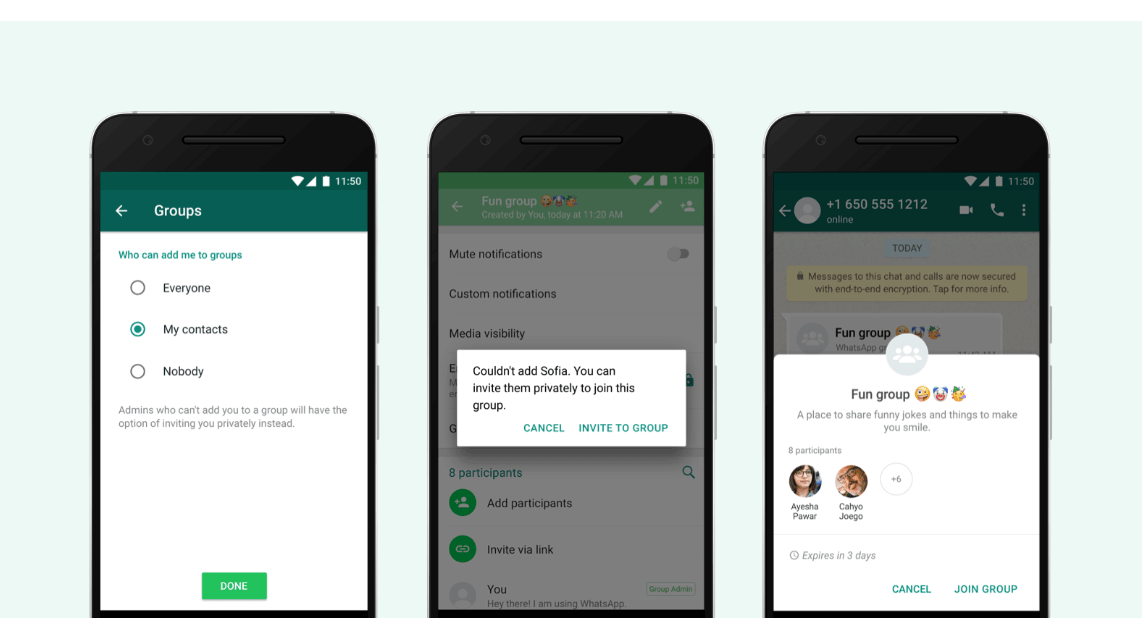
There are times that people want to talk, and times they rather stay alone. But on the 24/7 internet, people are left with no room for quite times.
This is especially true on groups in messaging apps. In WhatsApp for example, the popular messaging app can be annoying as users can drag anyone into groups without their consent.
And here, WhatsApp is fixing that.
In the form of a setting, it allows users to choose who can add them to group chats, leaving users with a ease and a better peace of mind.
To do this, they need to go to Settings, to then select Account, and then tap on Groups.
Here, users can select between 'Nobody', 'My Contacts', and 'Everyone', in which the latter was the default and the only option.
This WhatsApp added functionality is aimed to preserve users' privacy, preventing anyone from adding them to a group chat without permission.
With the update, If someone outside of the selected category still wants to add the users to a group, the user is required to send a private message with an invitation link, which gives basic information about the group they’ve been invited to.
The recipient can choose to join it if they want to.
"In those cases, the person adding you to a group will be prompted to send a private invite through an individual chat, giving you the choice of joining the group. You'll have three days to accept the invite before it expires," said WhatsApp.

The move comes as WhatsApp users are known to add others to their groups without asking, as often as they like resulting in a growing number of users expressing frustrations over spamming and unwanted messages they have to deal with.
This can be an issue, especially during national election, for example, where political parties are actively using the platform to spread their propaganda.
It can also be a prevention during incidents, in which in the past, has put WhatsApp in the middle of a battleground, acting as a closed echo chamber for fake news and misleading information to thrive.
"As people turn to groups for important conversations, users have asked for more control over their experience," said WhatsApp in a statement.
With users having the ability to block others from adding them to groups, this WhatsApp move can also be considered as its way to limit the number of times a message can be forwarded.
Previously, WhatsApp has already limited the amount of times a message can be forwarded to five, and also has labeled forwarded messages to let recipients know that the messages are forwarded.
In India, WhatsApp has also launched a fact-checking service where users can use to verify the truthfulness of any messages they’ve been sent.
On November 2019, WhatsApp tweaked this group chat privacy settings, to replace 'Everyone', 'My Contacts' and 'Nobody', to 'Everyone', 'My Contacts', or 'My Contacts Except'.